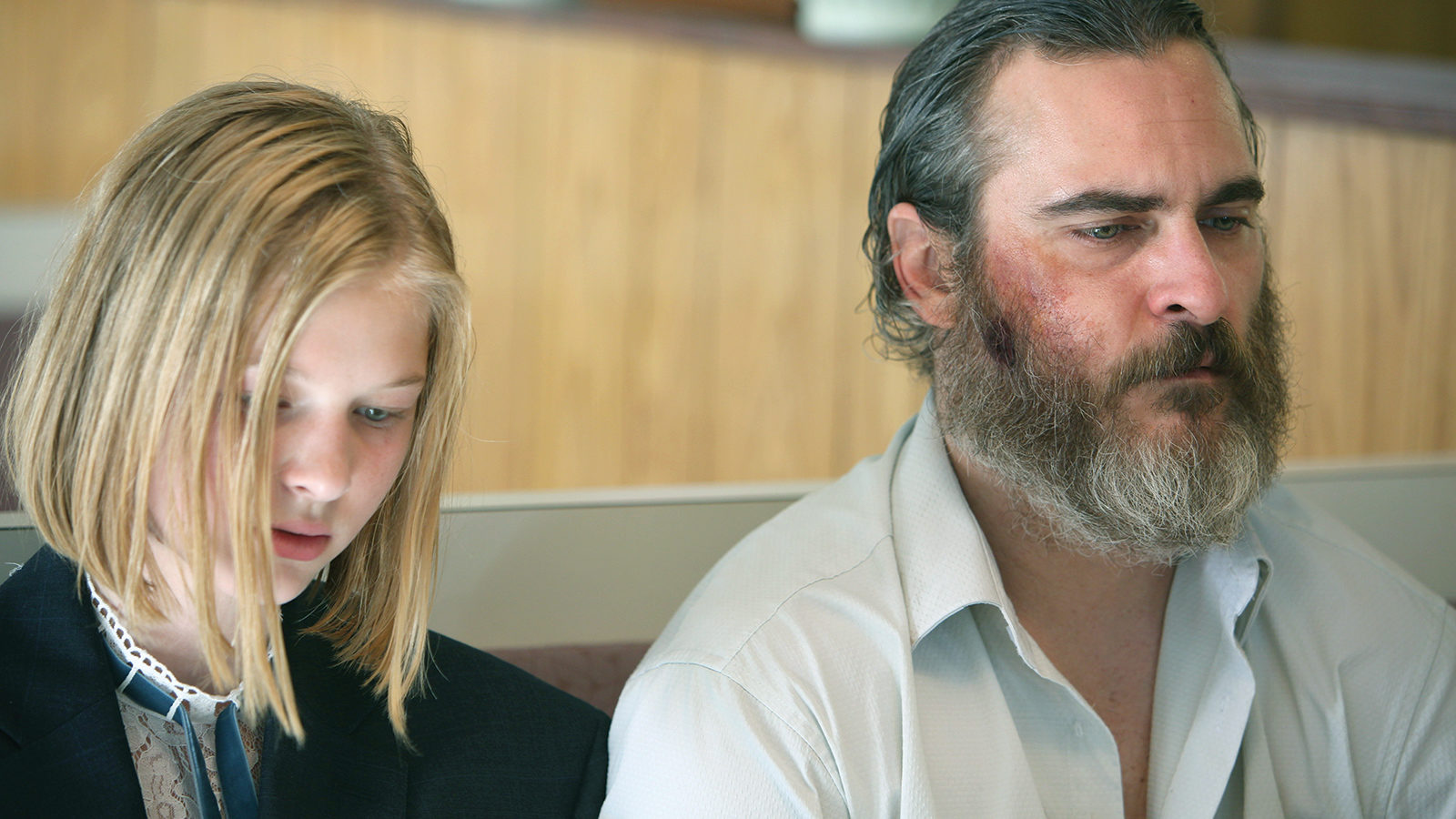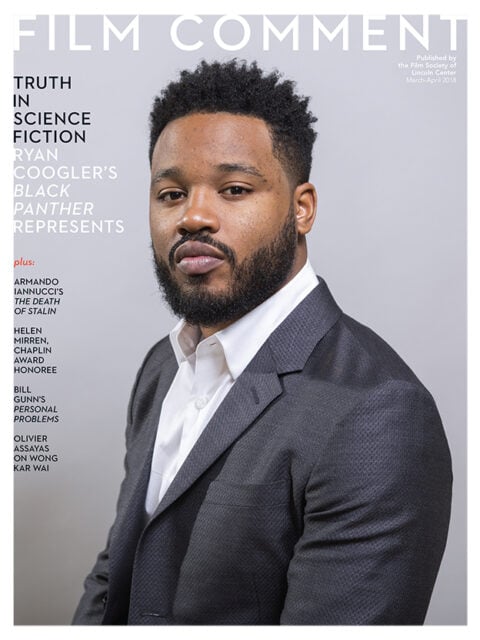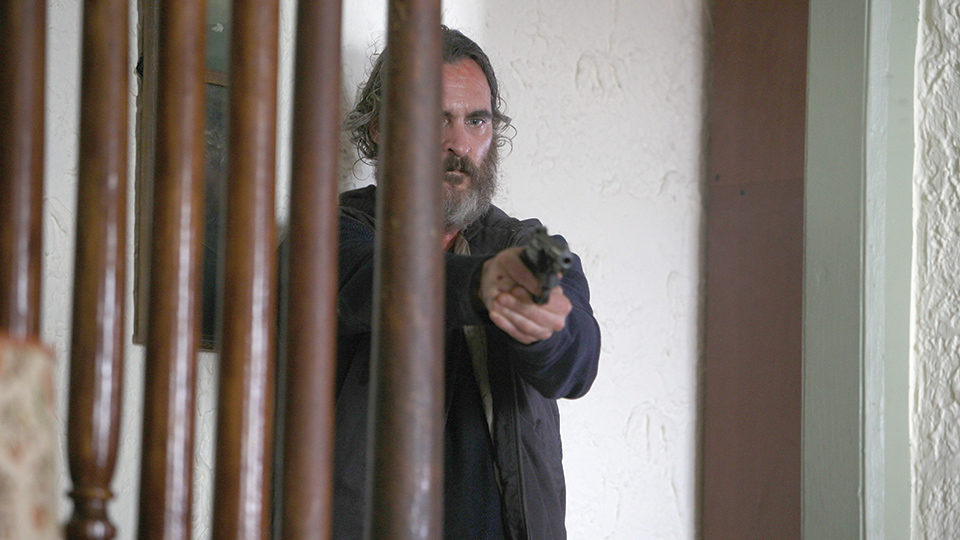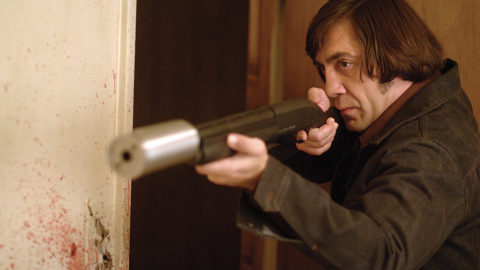By Gina Telaroli in the March-April 2018 Issue

Review: You Were Never Really Here
(Lynne Ramsay, USA, Amazon Studios, Opening April 6)
There’s something distinctly off-putting about Lynne Ramsay’s two American films, 2011’s We Need to Talk About Kevin and her most recent effort, You Were Never Really Here. Both hold the audience at a remove: the former through its non-chronological approach and sense of unavoidable dread, and the latter with its extremely compact and elliptical storytelling structure. Where We Need to Talk About Kevin hits the nail on the head in scene after scene (finally to great effect), You Were Never Really Here provides so little information that it ultimately becomes a movie about its own structure, about the way the scenes come together and what’s missing in between.

From the March-April 2018 Issue
Also in this issue
Since the film is adapted from a novella by Jonathan Ames, it is possible to do a little digging and infer more about the movie and its characters than is ever actually on screen. Ramsay avoids exposition and background, instead providing impressions in the form of images: a battered and bloated body, quick and vague flashbacks of an abusive father, jelly beans smashed between two fingers, and a man with his head in a plastic bag desperately trying to breathe. That man, played by Joaquin Phoenix, is as tightly wound as the movie. He is known only as Joe, and his opening scenes are assembled into a disorienting montage that focuses on action: the burning of a photo, the cleaning of a room, a telephone call, and an arrival in New York City. The sound and music (composed by Jonny Greenwood) are dominated by harsh strings and match the mostly unrelenting action.
The movie does seem to settle for a bit when Phoenix arrives at his mother’s home, where he also lives and where she, not unlike her son, appears to be slowly decaying. They are both like living ghosts, moving through the world but not a part of it. But, with an 85-minute runtime more reminiscent of brisk pre-Code movies than anything made today, it doesn’t sit still for long, and things are soon moving forward. Joe meets with a man, a colleague or perhaps a boss, who assigns him the task of rescuing Nina (Ekaterina Samsonov), the kidnapped underage daughter of a state senator. He then meets with the senator, who tells him, “I want you to hurt them.” From here it’s a trip to the hardware store to purchase a hammer (“Made in U.S.A.”).

As the movie continues, Ramsay gets more and more selective with what she shows. She increasingly leaves out pieces of the puzzle and finds new ways to set the story at a remove, like filming a dramatic and violent sequence completely from the vantage point of a fuzzy black-and-white security camera. The violence is seen but not necessarily felt, and it’s hard to predict what she’ll show you next. The film’s sense of anxiety is compounded by the limited access Ramsay gives us to the inner lives of her characters, Phoenix’s included. The movie is never really about Joe, about his desires, goals, or feelings, but what he is doing and, in turn, why he is doing it. The why manifests only in the macro instead of the micro. When he is with Nina, the form of his body takes on new meaning, as he has to alter his gestures and body language in order to gain her trust. Those changes don’t illustrate anything about Joe, though; they simply show a man adapting in order to execute a task.
Extraordinarily, Ramsay’s film is not about people; instead it uses them and their bodies to explore American systems of power, and the abuse that develops within. The political, monetary, and sexual forces that cause people to act are on display here, as are the physical consequences of said actions, with all emotion and psychology removed. If your typical movie could be visually represented as a building with people inside, You Were Never Really Here would be a mid-game Jenga tower, full of holes and always on the brink of collapse. It is deeply demoralizing and destabilizing in the moment and extremely impressive after the fact.
Gina Telaroli is a filmmaker, critic, and the video archivist for Martin Scorsese’s Sikelia Productions.







